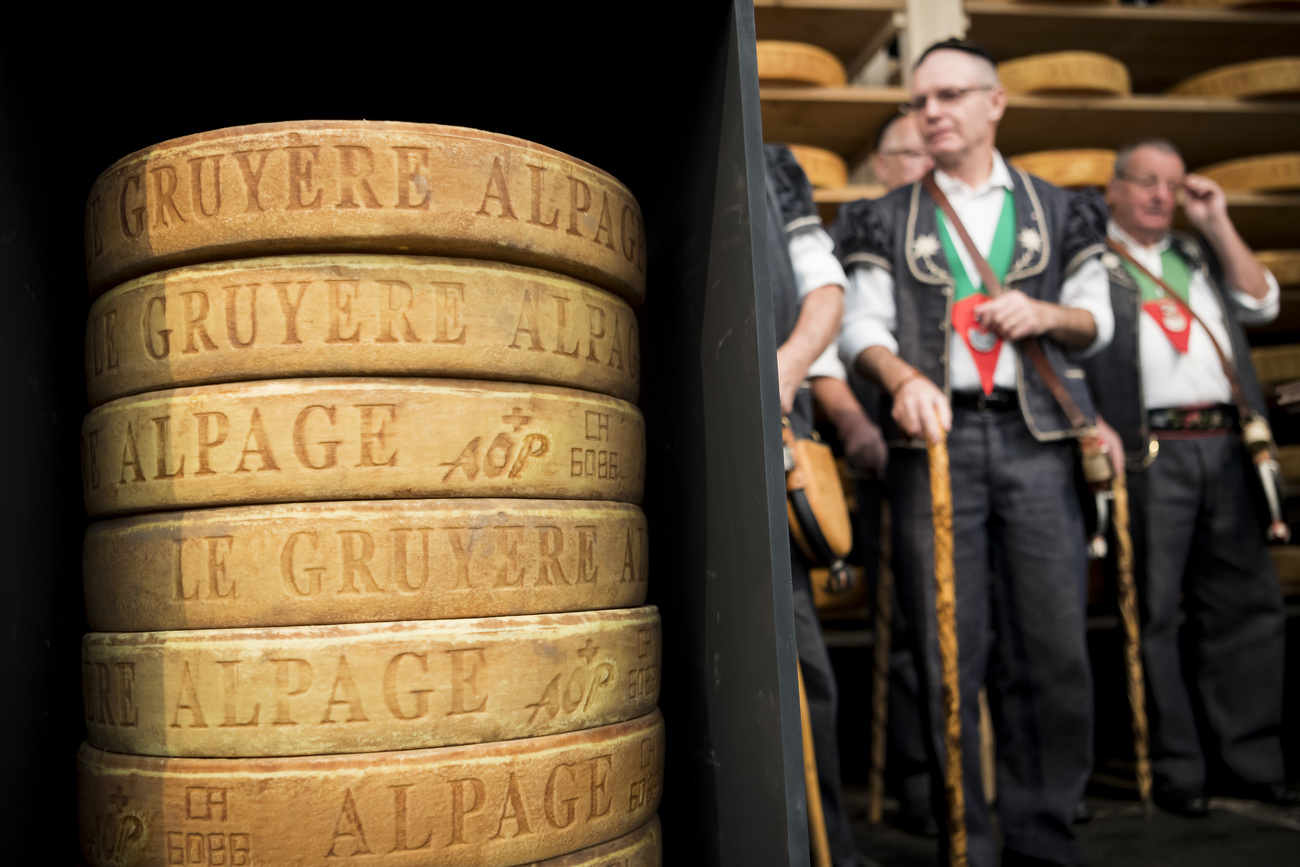
No holes in Swiss cheese exports despite coronavirus

Swiss cheese continues to sell well abroad with exports increasing by 1.6% in 2020.
The pandemic has not made a dent in the global appetite for cheese from the Alpine nation. A total of 77,124 tonnes was exported last year with a value of CHF693.8 million ($772.5 million), an increase of 3.9% in revenues.
Accounting for more than 80% of the export volume (62,919 tonnes), Europe is the most important market, Switzerland Cheese Marketing said on Tuesday. Germany alone imported 32,926 tonnes followed by Italy with 10,533 tonnes and France with 5,839 tonnes.
Another bit of good news was a recovery in exports outside Europe after a drop in 2019. A total of 14,205 tonnes of Swiss cheese were exported to the rest of the world in 2020.
Swiss consumers also looked beyond the country’s borders to satisfy their craving for fancy fromage. Switzerland imported 71,664 tonnes of cheese last year (up by 11.7%) at a cost of CHF453.5 million. Almost 82% of imported products came from Italy (up 12.2%), Germany (up 13.8%) and France (up 6.9%).
Switzerland also saved some cash through higher profits on exports and decreased cost of imports. The average export price per kilo of Swiss cheese, at CHF 9.19/kg (wholesale price), is higher than in the previous year (CHF 8.97/kg). Conversely, the average import price fell from CHF 6.78/kg in 2019 to CHF 6.31 /kg (wholesale price).
Around 45% of Swiss milk is processed into more than 700 Swiss cheeses and around 40% is exported to more than 70 countries around the world.

In compliance with the JTI standards
More: SWI swissinfo.ch certified by the Journalism Trust Initiative


























You can find an overview of ongoing debates with our journalists here . Please join us!
If you want to start a conversation about a topic raised in this article or want to report factual errors, email us at english@swissinfo.ch.